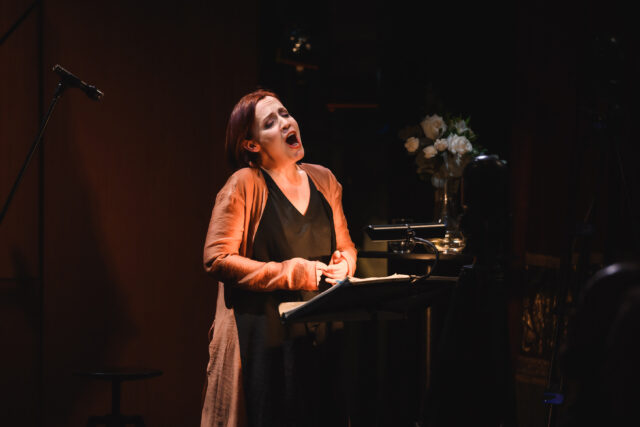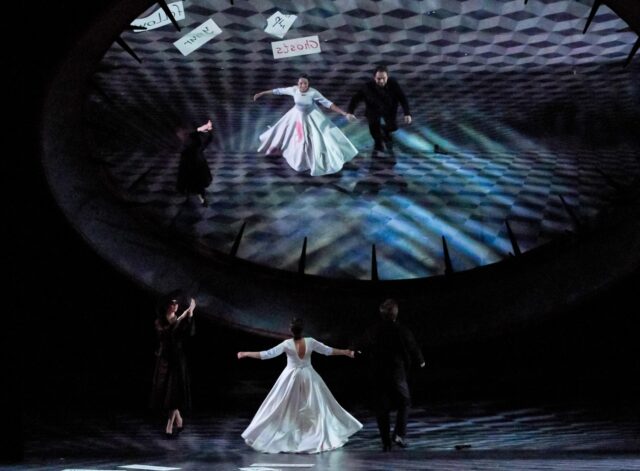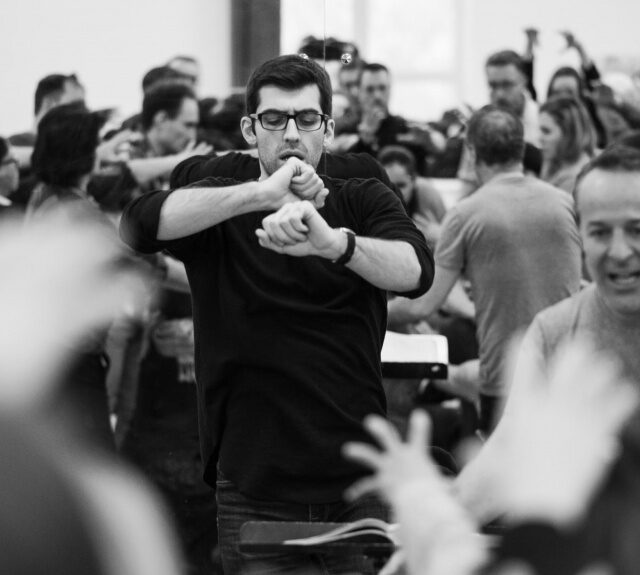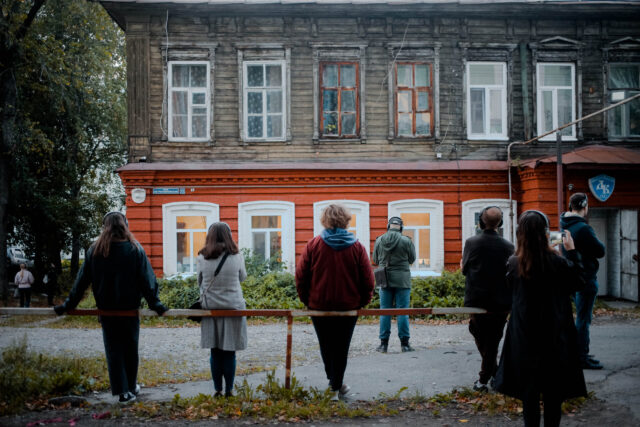- CONDUCTOR TEODOR CURRENTZIS, WITH HIS ORCHESTRA & CHOIR «MUSICAETERNA», IS MAKING A NO-COMPROMISE STUDIO RECORDING CYCLE OF MOZART’S THREE DA PONTE OPERAS
- LIVING IN A UNIQUE ARTISTIC COMMUNITY ESTABLISHED ON THE EDGE OF URAL, THESE MUSICIANS WORK AND RECORD UNDER IDEAL CONDITIONS
- CURRENTZIS’ STATED GOAL WITH THIS PROJECT IS «TO SHOW WHAT CAN BE ACHIEVED IF YOU AVOID THE FACTORY APPROACH OF THE CLASSICAL MUSIC MAINSTREAM»
- THE RECORDINGS REPRESENT AN UNPRECEDENTED COMMITMENT BY THE ARTISTS IN TERMS OF PREPARATION, SESSION & POSTPRODUCTION TIME, QUEST FOR BEST POSSIBLE SOUND
- THE RECORDINGS EMBODY A RADICAL NEW APPROACH TO ORCHESTRAL VIRTUOSITY AS WELL AS TO SCORE FIDELITY, VOCAL STYLE AND PERFORMANCE PRACTICE
- SONY CLASSICAL TO LAUNCH THE SERIES WITH «LE NOZZE DI FIGARO» IN FEBRUARY 2014; «COSÌ FAN TUTTE» TO FOLLOW IN AUTUMN OF 2014 AND «DON GIOVANNI» TO COMPLETE THE CYCLE IN AUTUMN OF 2015
- IN ADDITION TO THE CD AND ALL DIGITAL FORMATS, THE OPERAS WILL ALSO BE AVAILABLE AS HIGH RESOLUTION BLU-RAY AUDIO AND ON VINYL
Fourteen hundred kilometres east ofMoscow, in the Russian city ofPerm, the charismatic and provocative conductor Teodor Currentzis and MusicAeterna, the orchestra and choir he created, are recording Mozart’s Da Ponte operas. These no-compromise studio recordings are the fruit of a unique way of living and working which Currentzis has established in this remote, formerly closed city which was dedicated to arms manufacturing in Soviet times.
In 2011, when invited to the post of Artistic Director at Perm’s opera house, Currentzis negotiated unheard-of conditions: unlimited rehearsal time; the freedom to schedule performances depending on the quality reached in rehearsals; the necessary resources to explore with his musicians anything deemed necessary for a fuller understanding of the repertoire, from Baroque dance steps to 20th-century poetry and avant-garde cinema.
The orchestra and choir emphatically embrace a non-establishment attitude, constantly putting themselves in question and striving for perfection. As important as their musical prowess (many members are laureates of international competitions) is their willingness to undergo exceptional rigours to reach the shared artistic goals. Figaro was recorded in sessions of up to fourteen hours over eleven straight days and nights. It is an accepted part of these musicians’ daily routine to spend a whole night of work and discussion about its progress at the opera house if necessary – or to devote a full rehearsal to shaping one single chord to perfection. Currentzis has tried to create an environment for those who search for what he calls «a real life in music.» Since the founding of MusicAeterna, Currentzis and the ensemble have been awarded 4 Golden Masks –Russia’s top performing arts award.
Born in Athensin 1972, Teodor Currentzis moved to St. Petersburgin 1994 to study conducting with legendary teacher Ilya Musin, who has, among others, also trained Valery Gergiev and Semyon Bychkov. While music director of the Novosibirskopera from 2004, Currentzis founded MusicAeterna. After making headlines with various productions, including the controversial so-called «Chechnya Aida» directed by Dmitry Tcherniakov, Currentzis soon gained recognition beyond the Russian scene. One of Germany’s leading newspapers, the Süddeutsche Zeitung, recently described Currentzis as «a hugely talented individual who has proven a sensation on the international stage… Everything about him exudes power and intensity.» Peter Culshaw, writing in the London Telegraph, said: «Currentzis could be one of those rare artists capable of shifting the ground of his chosen art, and pulling off something extraordinary – perhaps even miraculous.»
Currentzis’ approach to the Mozart scores is based on the conviction that it is virtually impossible today to hear them performed precisely and in full. His stated intention is to undo what he considers the effects of 20th-century operatic tradition focused on simplification and vocal volume at all cost. For Currentzis, these recordings represent the culmination of a decade-long research project dedicated to the discrepancies between the composer’s will and what our ears have become used to. About his Figaro, he says:
«The radicality of this recording is its precision. It is through strictest discipline that you unlock the perfume, bring the composer’s text into real life, create all these colours that are impossible on the stage. This is why we spent such a significant amount of time in the studio – because we were pushing to reach our limits, to jump above our limit and reach a new understanding of this music. That is the privilege of a no-compromise studio recording. There are so many recordings which convey the general spirit of Mozart’s music. The only point in making a new one is to give the audience a chance to hear and learn about all the magic which this score holds. I made this recording because I wanted to show what can be achieved if you avoid the factory approach of the classical-music mainstream. My credo is that every performance you give has to be like a pregnancy. You have to dream and you have to wait until the time comes when you see the miracle happening. If you’re not like that in music, you lose the central idea of music. Music is not a profession and it’s not about reproduction. It’s a mission.»
Currentzis’ rigorous approach extends to all stages of the recording set-up as well as to the post-production sequence. The editing and mixing of Figaro inParis was a process of several weeks in which every single decision was made and its execution supervised by the conductor. Currentzis, a diehard devotee of high-end audio equipment, took particular care in the shaping of the overall soundscape for these recordings.
While period instruments are being used in this cycle, no dogmatic «authentic performance» claim is made. Currentzis chooses the orchestra’s instruments depending on repertoire. For the Da Ponte cycle, historic instruments were chosen because, as Currentzis explains:
«They give me the vibrancy, the speed, the taut, tight, crisp sound which fully delivers the thrill of this music. I use them because they sound better. If I thought this music sounded better on electric guitars, I would perform it on electric guitars.»
The soloists’ vocal technique is also markedly different to modern operatic interpretation, with a focus on intimacy and clarity, a use of vibrato remarkably restrictive even by today’s «period practice» standards as well as an approach to melodic ornamentation derived from historical sources which cannot be heard in other performances of these works.
A LONG-TERM EXCLUSIVE CONTRACT WITH SONY CLASSICAL
In 2012 Sony Classical signed an exclusive long-term agreement with Currentzis under which all of his recordings will be made with MusicAeterna. The first two opera recordings, already finished, were Mozart’s Figaro and Così. Don Giovanni will be recorded in October 2014.
The lead soloists appearing in Le nozze di Figaro are Andrei Bondarenko as Count Almaviva, Simone Kermes as Countess Almaviva, Christian Van Horn as Figaro and Fanie Antonelou as Susanna. The Così fan tutte lead soloists are Simone Kermes as Fiordiligi, Malena Ernman as Dorabella, Christopher Maltman as Guglielmo, Kenneth Tarver as Ferrando, Konstantin Wolff as Don Alfonso, and Anna Kasyan as Despina.
Sony Classical will release Le nozze di Figaro first in February 2014. Così fan tutte will follow in autumn 2014 and the cycle will be completed with Don Giovanni in the autumn of 2015.
Le nozze di Figaro will be available internationally on February 17, 2014:
- on CD in a limited edition deluxe book;
- on high-resolution Blu-ray;
- on vinyl LP; and
- in all popular digital formats including Mastered for iTunes.



